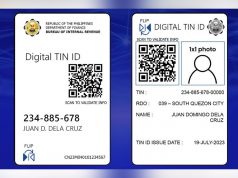Do content creators pay taxes?
Several Filipinos discussed this topic in an online forum following the revelation that one vlogger earns as much as P400,000 for a single collaborative project.
One Redditor posted on October 24 a screenshot of a tweet from a lawyer who asked if the Bureau of Internal Revenue (BIR) is going after the taxes of content creators in the Philippines.
“Like tama di ba? Based on the screenshot, they’re approximating people and collabs based on revenue? Mukhang mali ang pinasok nating trabaho mga misis,” the tweet in the screenshot reads.
The lawyer was talking about one of the alleged screenshots of messages from Zeinab Harake to Wilbert Tolentino. Tolentino disclosed these screenshots to his viewers in a video titled “Ang Rebelasyon” where he talked about his beef with Harake.
RELATED: ‘Akala mo lang wala’: Robi Domingo posts ‘public market’ photo after vlogger’s viral claim
The Reddit post, meanwhile, got 425 upvotes on the subreddit r/Philippines, an online community that talks about topics related to the Philippines.
In the discussion section, some Redditors pointed out that self-employed individuals such as content creators are taxable by Philippine law.
“The Philippines is a self-assessment country where you report your own income and then pay the tax therein unlike, for example, Singapore where you will receive your tax bill,” a Reddit user said.
“The NIRC is clear and does not distinguish when it says income from all sources should be taxed. Even illegally acquired income is taxable,” another user said.
NIRC is the National Internal Revenue Code of 1997 or the Tax Code of the Philippines.
What the Tax Code says
All content creators, bloggers or social media influencers have tax obligations to the BIR, according to a memorandum the bureau issued on Aug. 16, 2021.
The BIR has a detailed definition for the term “social media influencers” in the circular which reads:
“…all taxpayers, individuals or corporations, receiving income, in cash or in kind, from any social media sites and platforms (YouTube, Facebook, Instagram, Twitter, TikTok, Reddit, Snapchat, etc.) in exchange for services performed as bloggers, video bloggers or “vloggers” or as an influencer, in general, and from any other activities performed on such social media sites and platforms.”
According to the BIR, they are liable for two types of taxes—income tax and business tax (percentage tax or value-added tax).
Guidelines for tax classifications in relation to social media influencers can be viewed on this link RMC No. 97-2021.pdf (bir.gov.ph).
Those who willfully evade the payment of taxes or intentionally fail to fulfill their tax obligations can be held criminally liable under the following sections of the Tax Code:
- Section 254: Attempt to Evade or Defeat Tax
- Section 255: Failure to File Return, Supply Correct and Accurate Information, Pay Tax Withhold and Remit Tax and Refund Excess Taxes Withheld on Compensation
Under the Tax Code, influencers and content creators are also classified as self-employed individuals who receive “self-employment income, whether it constitutes the sole source of his income or in combination with salaries, wages and other fixed or determinable income.”
Moreover, in section 23 of the NIRC, it was also stated that all citizens in the Philippines who earn income are taxable.
“A citizen of the Philippines residing therein is taxable on all income derived from sources within and without the Philippines,” the section reads.
Policy of YouTube-Google
In the previous post, one Redditor also cited the tax policy of YouTube and Google to creators.
“YT actually requires you to submit your tax documents or they will deduct more from your income. I work for a creator in the US and I’m also a creator,” the Reddit user said.
On YouTube’s Help Center, it was stated that all monetizing creators are required to submit their tax information regardless of their locations.
“All monetizing creators on YouTube, regardless of their location in the world, are required to provide tax info. Please submit your tax info as soon as possible. If your tax info isn’t provided by May 31, 2021, Google may be required to deduct up to 24% of your total earnings worldwide,” the policy reads.










